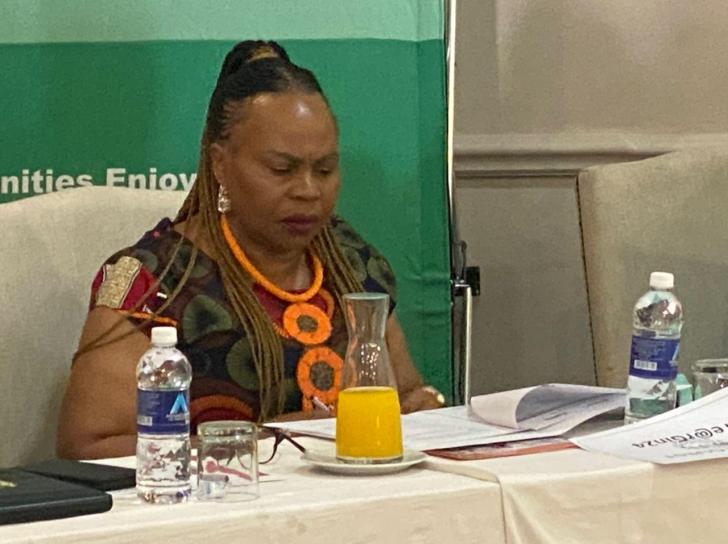News / National
Govt committed to ensure women's inclusion in disaster management - Mutsvangwa
05 Oct 2023 at 14:10hrs |
182 Views

The government of Zimbabwe has called on for stakeholders collaboration and partnerships with women to ensure disaster management efforts are inclusive, equitable and effective in addressing climate change scourge.
While speaking during the gender and disaster risk management stock-taking workshop in Harare, the Minister of Women Affairs, Community, Small and Medium Enterprises Development, Senator Monica Mutsvangwa express commitment towards ensuring that disaster risk management efforts are responsive to the needs of all people.
"As a Ministry, we are committed to ensuring that our disaster risk management efforts are inclusive, equitable and responsive to the needs of all people; integrating gender perspectives into our policies, plans and practices, to address the specific vulnerabilities and capacities of women, girls, men and boys," Mutsvangwa said.
"I am happy that organisations like CARE International and UNDP are creating such platforms for joint efforts as we scale up, support and create spaces for women’s voices to be heard and ensure their active participation in decision-making processes during disaster planning, prevention, response and mitigation," Mutsvangwa added.
"An empowered woman is a key agent of change and can participate meaningfully in building a more resilient community. We need to support them by providing an enabling environment; changing harmful and unequal power relations and transforming harmful structures and social norms for them to exercise their capabilities,"
"I will reiterate, that collaboration and partnerships are key to promoting gender equality and enhancing disaster resilience. Civil society organizations, the private sector, women's groups, international agencies, and the government share knowledge, resources, and best practices that can bring about inclusive gender transformative disaster risk mitigation strategies," Mutsvangwa remarks.
The Minister added that there is need for collective efforts to build knowledge, skills, and capabilities to create opportunities for people of all genders, to achieve greater impact and build a safer, and more inclusive world which is a tangible realisation of one of the priorities under the National Development Strategy 1.
While speaking during the gender and disaster risk management stock-taking workshop in Harare, the Minister of Women Affairs, Community, Small and Medium Enterprises Development, Senator Monica Mutsvangwa express commitment towards ensuring that disaster risk management efforts are responsive to the needs of all people.
"As a Ministry, we are committed to ensuring that our disaster risk management efforts are inclusive, equitable and responsive to the needs of all people; integrating gender perspectives into our policies, plans and practices, to address the specific vulnerabilities and capacities of women, girls, men and boys," Mutsvangwa said.
"An empowered woman is a key agent of change and can participate meaningfully in building a more resilient community. We need to support them by providing an enabling environment; changing harmful and unequal power relations and transforming harmful structures and social norms for them to exercise their capabilities,"
"I will reiterate, that collaboration and partnerships are key to promoting gender equality and enhancing disaster resilience. Civil society organizations, the private sector, women's groups, international agencies, and the government share knowledge, resources, and best practices that can bring about inclusive gender transformative disaster risk mitigation strategies," Mutsvangwa remarks.
The Minister added that there is need for collective efforts to build knowledge, skills, and capabilities to create opportunities for people of all genders, to achieve greater impact and build a safer, and more inclusive world which is a tangible realisation of one of the priorities under the National Development Strategy 1.
Source - Byo24News
Join the discussion
Loading comments…









































